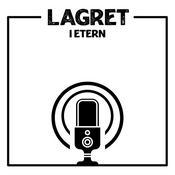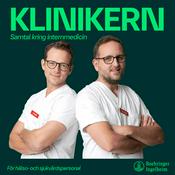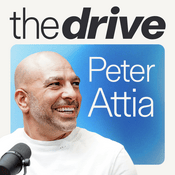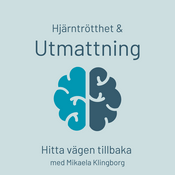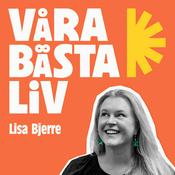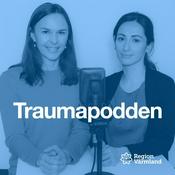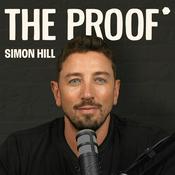182 avsnitt
- Send us a text
This session is a practical walkthrough of where digital pathology and AI truly stand in early 2026—based on five recent PubMed papers and real-world implementation experience.
In this episode, I review new clinical adoption guidelines, AI applications in liver cancer imaging and pathology, AI-ready metadata for whole slide images, non-destructive tissue quality control from H&E slides, and machine learning–assisted IHC scoring in precision oncology.
This conversation is not about hype. It’s about standards, validation, data integrity, and clinical translation—the factors that decide whether AI tools stay in research or reach patient care.
Episode Highlights
01:21 – Practical digital pathology adoption guidelines (Polish Society of Pathologists)
08:05 – AI in liver cancer imaging & pathology, and why framework alignment matters
18:10 – AI-generated tissue maps as metadata for WSI archives
23:01 – PathQC: predicting RNA integrity and autolysis from H&E slides
32:14 – ML-assisted IHC scoring in genitourinary cancers
29:42 – Digital Pathology 101 book + community updates
Key Takeaways
Digital pathology adoption still requires clear standards and validation workflows
AI performs best when aligned with existing diagnostic frameworks (e.g., LI-RADS)
Metadata extraction is a low-effort, high-impact AI use case
Slide-based quality control can support biobanking and biomarker research
Automated IHC scoring improves consistency—but adoption remains uneven globally
Resources Mentioned
Digital Pathology 101 (free PDF & audiobook)
Publication Links: a. https://pubmed.ncbi.nlm.nih.gov/41618426/ b. https://pubmed.ncbi.nlm.nih.gov/41616271/ c. https://pubmed.ncbi.nlm.nih.gov/41610818/ d. https://pubmed.ncbi.nlm.nih.gov/41595938/ e. https://pubmed.ncbi.nlm.nih.gov/41590351/
Support the show
Get the "Digital Pathology 101" FREE E-book and join us! - Send us a text
What happens when artificial intelligence moves beyond images and begins interpreting clinical notes, kidney biopsies, multimodal cancer data, and even healthcare costs?
In this episode, I open the year by exploring four recent studies that show how AI is expanding across the full spectrum of medical data. From Large Language Models (LLM) reading unstructured clinical text to computational pathology supporting rare kidney disease diagnosis, multimodal cancer prediction, and cost-effectiveness modeling in oncology, this session connects innovation with real-world clinical impact.
Across all discussions, one theme is clear: progress depends not just on performance, but on integration, validation, interpretability, and trust.
HIGHLIGHTS:
00:00–05:30 | Welcome & 2026 Outlook
New year reflections, global community check-in, and upcoming Digital Pathology Place initiatives.
05:30–16:00 | LLMs for Clinical Phenotyping
How GPT-4 and NLP automate phenotyping from free-text EHR notes in Crohn’s disease, reducing manual chart review while matching expert performance.
16:00–23:30 | AI Screening for Fabry Nephropathy
A computational pathology pipeline identifies foamy podocytes on renal biopsies and introduces a quantitative Zebra score to support nephropathologists.
23:30–29:30 | Is AI Cost-Effective in Oncology?
A Markov model evaluates AI-based response prediction in locally advanced rectal cancer, highlighting when AI delivers value—and when it does not.
29:30–38:30 | LLM-Guided Arbitration in Multimodal AI
A multi-expert deep learning framework uses large language models to resolve disagreement between AI models, improving transparency and robustness.
38:30–44:30 | Real-World AI & Cautionary Notes
Ambient clinical scribing in practice, AI hallucinated citations, and why guardrails remain essential.
KEY TAKEAWAYS
• LLMs can extract meaningful clinical phenotypes from narrative notes at scale
• AI can support rare disease diagnosis without replacing expert judgment
• Economic value matters as much as technical performance
• Explainability and arbitration are becoming critical in multimodal AI systems
• Human oversight remains central to responsible adoption
Resources & References
Digital Pathology Place: https://www.digitalpathologyplace.com
Digital Pathology 101 (free PDF, updates included)
Automating clinical phenotyping using natural language processing
Zebra bodies recognition by artificial intelligence (ZEBRA): a computational tool for Fabry nephropathy
Cost-effectiveness analysis of artificial intelligence (AI) for response prediction of neoadjuvant radio(chemo)therapy in locally advanced rectal cancer (LARC) in the Netherlands
A multi-expert deep learning framework with LLM-guided arbitration for multimodal histopathology prediction
Support the show
Get the "Digital Pathology 101" FREE E-book and join us! - Send us a text
What really changed in digital pathology this year—and what still needs work?
As we close out 2025 and step into 2026, I wanted to pause, reflect, and share what I’ve seen shift from theory to real-world practice across labs, conferences, and clinical workflows.
I look back at the most meaningful developments in digital pathology and AI in 2025—from wider adoption of primary diagnosis on digital slides to more grounded, evidence-driven use of AI tools. We’ve moved past hype and pilots and started asking harder questions about validation, workflow integration, regulation, and trust.
I also share what I believe matters most as we move into 2026: building real-world evidence, upskilling pathologists, and focusing on tools that genuinely support patient care rather than distract from it.
This episode is for anyone navigating change in pathology and wondering where to invest their time, energy, and curiosity next.
Episode Highlights:
[00:00–02:10] Why 2025 marked a turning point for digital pathology adoption
[02:10–05:40] From pilot projects to clinical workflows: what actually changed
[05:40–08:30] How AI usage shifted toward triage, quantification, and decision support
[08:30–11:45] Why validation and real-world evidence became central topics
[11:45–14:20] The growing role of pathologists in AI governance and quality assurance
[14:20–17:10] Lessons from conferences, labs, and conversations worldwide
[17:10–20:00] What I expect to see more of in 2026—and what I hope we leave behind
Key Takeaways:
Digital pathology is no longer experimental—it’s becoming routine in more labs.
AI tools are shifting from novelty to practical clinical support.
Validation, regulation, and workflow fit matter more than algorithm performance alone.
Training and continuous learning are now essential career components for pathologists.
2026 will reward teams that test, measure, and iterate thoughtfully.
Resources Mentioned
Digital Pathology Place – education, podcasts, and community
2025 CONFERENCE insights and real-world lab experiences
Support the show
Get the "Digital Pathology 101" FREE E-book and join us! 179: How is the BigPicture Project using Foundation Models and AI in Computational Pathology?
2025-12-17 | 1 h 6 min.Send us a text
What if the biggest breakthrough in pathology AI isn’t a new algorithm—but finally sharing the data we already have?
In this episode, I’m joined by Jeroen van der Laak and Julie Boisclair from the IMI BigPicture consortium, a European public-private initiative building one of the world’s largest digital pathology image repositories. The goal isn’t to create a single AI model—but to enable thousands by making high-quality, legally compliant data accessible at scale.
We unpack what it really takes to build a 3-million-slide repository across 44 partners, why GDPR and data-sharing agreements delayed progress by 18 months, and how sustainability, trust, and collaboration are just as critical as technology. This conversation is about the unglamorous—but essential—work of building infrastructure that will shape pathology AI for decades.
⏱️ Highlights with Timestamps
[00:00–01:40] Why BigPicture focuses on data—not algorithms
[01:40–03:16] Scope of the project: 44 partners, 15–18 countries, 3M images
[03:16–06:20] The 18-month delay caused by legal frameworks and GDPR
[06:20–11:52] Extracting data from heterogeneous lab infrastructures
[11:52–13:38] Current status: 115,000 slides uploaded and growing
[13:38–18:39] Why LLMs and foundation models make curated data more valuable than ever
[18:39–23:49] Industry collaboration and shared negotiating power
[23:49–28:06] Data access models and governance after project independence
[28:06–31:59] Sustainability plans and nonprofit foundation model
[37:02–43:18] Tools developed: DICOMizer, artifact detection AI, image registration
📚 Resources from This Episode
IMI BigPicture Consortium
GDPR & Data Sharing Agreements (DSA)
DICOMizer & SEND metadata tools
Artifact detection AI for slide QC
European AI Factories initiative
Support the show
Get the "Digital Pathology 101" FREE E-book and join us!- Send us a text
What if the biggest transformation in digital pathology this year had nothing to do with new hardware—and everything to do with how we think about value, workflow, and readiness?
In this year-end recap livestream from the 11th Digital Pathology & AI Congress in London, I break down what truly mattered in 2025. Instead of focusing on buzzwords or hype cycles, this episode highlights the practical advances shaping diagnostics, patient care, and drug development—and the mindset shift our field must embrace to move forward.
Digital pathology is no longer “early adoption.” It’s becoming essential infrastructure. And yet the biggest barrier isn’t scanners or algorithms—it’s the knowledge and confidence needed to use them well.
Key Highlights & Timestamps
0:00 — Setting the Stage from London
An overview of the forces that shaped digital pathology in 2025: workflow integration, clinical readiness, and the move from theory to operational reality.
1:45 — Leica’s Expanded Portfolio & FDA-Cleared Collaborations
A look at Leica’s updated scanner lineup and co-developed, FDA-cleared solutions with Indicollabs. These launches reflect a broader industry trend toward highly specialized, clinically validated digital tools designed for end-to-end workflows.
4:12 — The Acceleration of Companion Diagnostics
From Artera’s de novo–approved prostate prognostic test to AstraZeneca’s TROP2 scoring efforts, 2025 pushed computational pathology directly into therapeutic decision-making.
6:20 — Why Workflow Integration Became the Theme of 2025
Partnerships like BioCare + Hamamatsu + Visgen and Zeiss + MindPeak show where the field is heading: full-stack solutions, not isolated tools. Labs want interoperability, reliability, and simplified digital workflows.
9:10 — Adoption Challenges: ROI, Education & AI Uncertainty
We explore the realities slowing digital transformation:
– ROI is real, but requires workflow change
– AI anxiety persists among clinicians and patients
– Education is still the strongest driver of adoption
12:00 — 2025’s Innovation Highlights
Breakthroughs shaping the next phase of digital pathology include:
– emerging agentic AI platforms
– voice-enabled image management systems
– improved multiplexing technologies like Hamamatsu’s Moxiplex
15:40 — The Growing Intersection of Pathology & Genomics
AI models predicting genomic alterations from H&E images gained traction, especially for cases with minimal tissue. Tempus acquiring Paige signals the deepening connection between digital workflows and molecular data.
18:30 — What 2026 Will Require
Priorities for the coming year include:
– building agentic AI solutions capable of real workflow orchestration
– strengthening validation and QC
– sharing real-world deployment case studies
– expanding training and hands-on learning
RESOURCES:
1. The Lucerne Toolbox 3: digital health and artificial intelligence to optimise the patient journey in early breast cancer-a multidisciplinary consensus
2. Artificial intelligence (AI) molecular analysis tool assists in rapid treatment decision in lung cancer: a case report
Support the show
Get the "Digital Pathology 101" FREE E-book and join us!
Fler podcasts i Hälsa och motion
Trendiga poddar i Hälsa och motion
Om Digital Pathology Podcast
Aleksandra Zuraw from Digital Pathology Place discusses digital pathology from the basic concepts to the newest developments, including image analysis and artificial intelligence. She reviews scientific literature and together with her guests discusses the current industry and research digital pathology trends.
Podcast-webbplatsLyssna på Digital Pathology Podcast, Allt Annat Än Perfekt och många andra poddar från världens alla hörn med radio.se-appen
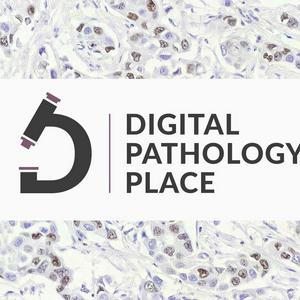
Hämta den kostnadsfria radio.se-appen
- Bokmärk stationer och podcasts
- Strömma via Wi-Fi eller Bluetooth
- Stödjer Carplay & Android Auto
- Många andra appfunktioner
Hämta den kostnadsfria radio.se-appen
- Bokmärk stationer och podcasts
- Strömma via Wi-Fi eller Bluetooth
- Stödjer Carplay & Android Auto
- Många andra appfunktioner


Digital Pathology Podcast
Skanna koden,
ladda ner appen,
börja lyssna.
ladda ner appen,
börja lyssna.











